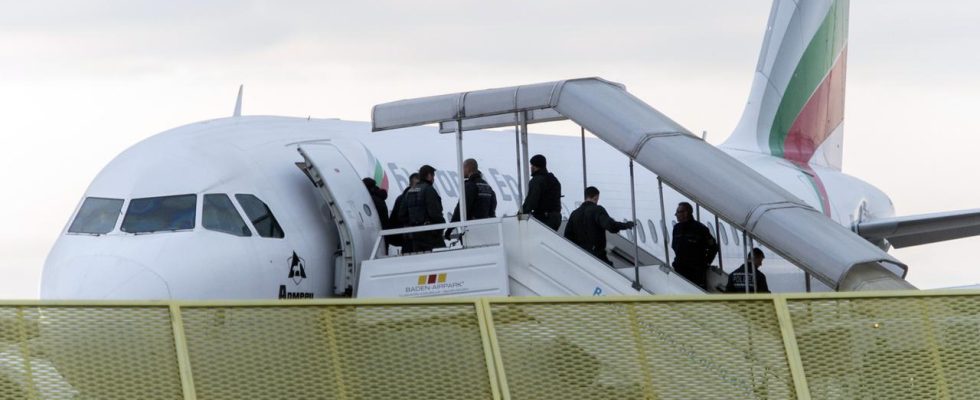interview
The federal government wants to increase the number of deportations by giving the police and authorities more powers. Political scientist Luft says that this will do little to change the main problem. Immigration authorities are completely overloaded.
tagesschau.de: How do you rate Interior Minister Faeser’s new package of measures, which was approved by the Federal Cabinet today?
Stefan Luft: It is the fifth package of measures since 2015 and the federal government wants to demonstrate its ability to act, as with the other four previous bills. However, the result will actually change little.
Immigration authorities “completely overwhelmed”
tagesschau.de: Why doesn’t the package of measures bring any relief?
Air: You have to see: Asylum procedures are complex processes. It makes little sense to speed up processes in some places and continue to push procedures through the bottleneck in many others, thereby slowing them down. This makes neither administrative economic nor political sense.
A central bottleneck is the immigration authorities of the federal states, which are mostly located in the municipalities. They are completely overwhelmed – on the one hand by the hyper-complex asylum and immigration law and on the other hand by the size of the groups affected.
To person
Stefan Luft is a private lecturer at the Institute for Political Science at the University of Bremen. His research interests include the topics of migration and integration.
tagesschau.de: What does a deportation bring to the municipalities, which as a whole have reached the limits of their capacities?
Air: If you say that the asylum system depends on the fact that those who are not given the right to stay actually leave the country again, then you can say that we have so far missed the mark by a long way. As a result, eight out of ten people within the EU who are required to leave the country stay here.
Of course you are on the one hand regarding the acceptance of the legal institution of asylum among the population, but also in view of the costs associated with it, it is dependent on the fact that the majority of those who are not given the right to remain here also leave the country again. Otherwise there will be legitimacy problems in the long run.
“Expectation not justified”
tagesschau.de: Interior Minister Faeser’s plans now stipulate that deportations will take place more quickly. Doesn’t that mean relief?
Air: It would mean relief if significantly more people were actually deported. The government draft speaks of 600 more people per year. It remains to be seen whether this can be achieved, but the magnitude of several 100,000 people who are in principle obliged to leave the country shows the scale in which we are moving here. I don’t think the expectation that something would fundamentally change is justified.
“Administrations have not grown accordingly”
tagesschau.de: Union representatives criticize that the measures do not go far enough. How do you see that?
Air: The main problem is the overburdened immigration authorities in all federal states, even in the past decades. Nothing has changed fundamentally. As long as the influx via the asylum migration path is of the magnitude that we have seen since 2015, it will hardly be possible to control it accordingly because the administrations have not grown accordingly. Because immigration and asylum law is correspondingly impractical and has not been adapted to these dimensions.
It is a fair-weather law that suits smaller scales, but not these dimensions. Therefore, as long as the general conditions remain as they are, in my opinion there will be no fundamental changes.
tagesschau.de: What do you suggest instead?
Air: You have to reduce the pressure on the asylum migration path, and reduce it very much. The procedures must be carried out either at the external borders or in third countries. And then the part that has no claim to the right to remain must be repatriated immediately.
The EU has agreed on the procedures at the external borders, at least as far as the interior ministers are concerned. The proceedings are far from over and no definitive decision has been reached yet. Of course, all of this is easier to say than it is to actually carry out. But it depends on which direction you think.
The interview was conducted by Kirsten Gerhard for tagesschau24. It has been shortened and edited for the written version.

